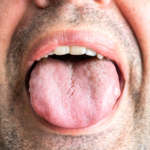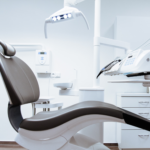Ah, cold water. It’s refreshing, thirst-quenching, and perfect on a hot day. But some people swear that icy water sends a jolt of pain through their teeth. So, does cold water damage your pearly whites, or is it safe to indulge?
The Truth About Temperature
The good news: cold water itself isn’t harming your teeth. The discomfort you feel is likely due to tooth sensitivity. This happens when the protective enamel layer wears down, exposing tiny tubules in the dentin layer of your tooth. These tubules lead directly to the nerves in your teeth, and when hit with cold (or heat), they can trigger a zap of pain.
Causes of Sensitive Teeth
Several factors can contribute to tooth sensitivity:
- Receding gums: As gums recede, the root surface of your tooth becomes exposed, which is more prone to sensitivity.
- Worn enamel: Overzealous brushing, acidic foods and drinks, or even grinding your teeth can wear down enamel.
- Cracked teeth: Tiny cracks in teeth can allow cold (and hot) to reach the nerves.
- Gum disease: Inflamed gums can also contribute to sensitivity.
Keeping Cold Sensitivity at Bay
If you experience tooth sensitivity, don’t ditch the cold water entirely. Here are some tips for managing it:
- Use a straw: Sipping cold drinks through a straw minimizes contact with sensitive teeth.
- Desensitizing toothpaste: These toothpastes contain ingredients that block the tubules in dentin, reducing sensitivity.
- Temperature moderation: Let very cold beverages warm up slightly before drinking.
- Gentle brushing: Use a soft-bristled brush and avoid brushing too hard, which can wear down enamel.
- Regular dental checkups: Your dentist can identify and address any underlying causes of sensitivity.
Cold Water: Still Your Hydrating Hero
There’s no need to fear cold water. By understanding tooth sensitivity and practicing good oral hygiene, you can keep your teeth healthy and enjoy refreshing cold water whenever you please. If you experience persistent or worsening sensitivity, consult your dentist to rule out any underlying dental issues.








